Croatian Reporters Take 5 Ukrainian Children in Their Van En Route to Poland
ZAGREB, 26 Feb 2022 - Croatian reporters waiting in a long line at a Ukrainian border crossing to enter Poland on Saturday took five Ukrainian children in their van so they could meet with their mother on the Polish side of the border.
"There are many families with children. We, too, have taken five children in our van and will try to drive them to the border crossing. The police asked us to. The children's mother is on the other side of the border, in Poland," N1 television reporter Ana Mlinarić said in a broadcast.
Croatian reporters are waiting to leave Ukraine in a kilometres-long line near a border crossing with Poland. Mlinarić tweeted that thousands of Ukrainians are trying to leave the country, fleeing from war.
N1 reporters are sharing the van with crews from RTL and Nova TV who left Kyiv yesterday.
The Blame Game: Reactions to Croatian 2021 Census Varied
January the 16th, 2022 - There have been a varied range of reactions to the recently revealed official Croatian 2021 Census results, from shock and references to ''catastrophe'' to those who most absolutely expected such an underwhelming result.
As Poslovni Dnevnik writes, after the Central Bureau of Statistics published the first official data from the Croatian 2021 Census, according to which 3,888,529 people live in the Republic of Croatia, the first reactions have arrived.
"We expected the population to be less than 3.8 million," said Croatian demographer Stjepan Sterc, who was a recent guest on N1's live studio. He added that little was said about Croatia losing almost 400,000 inhabitants.
"This is an incredible catastrophe for Croatia, to lose 400,000 inhabitants and that there is no reaction to it or awareness of it," added demographer Sterc.
Member of Parliament Katarina Peovic also commented on the results of the Croatian 2021 Census as a guest in N1's studio.
"It must be said openly that people have been expelled from the country. The birth rate is low everywhere, but in Croatia there are measures that force young people to leave the country. For the first time, we have a situation where young people have worse living conditions than their parents did. Young people are creating a surplus of the population, they're deemed unnecessary and this country does not intend to use them. We have a million unemployed people, no country can prosper if there are so many people who are deemed to be unnecessary to it,'' said Peovic.
"The devastating results of the Croatian 2021 Census are a defeat to all those who led this country first and foremost, for the last ten years! But what's even more of a concern is their deep misunderstanding of the problem they're trying to solve with the measure Choose Croatia - which would pay people to return here,'' said the head of Nova ljevica (New Left), Ivana Kekin, on Twitter.
The prefect of Vukovar-Srijem County, Damir Dekanic, commented on the Croatian 2021 Census results and the fact that his county has almost 20 percent fewer people than it did before 2011. "I have to admit that this result is, unfortunately, expected," said Dekanic, adding that a large number of people from the county he's in charge of left with Croatia's entry into the European Union (EU).
"HDZ is not in power in the Czech Republic, so the results of the population in the Czech Republic are because people have moved out of the country when it joined the European Union," he said in response to people criticising HDZ as the results came in.
"The general climate of return should be created first, just as the general climate of departure was created in the media," Dekanic added.
Rajko Ostojic considers the results of the Croatian 2021 Census utterly catastrophic. "Corruption, crime and clientelism are the main reasons why people are leaving Croatia," said Ostojic as a guest on the N1 live studio.
For more, check out our dedicated politics section.
Conflict of Interest Commission Head: We Have to Probe Disputed Donations Yet
ZAGREB, 13 July, 2021 - The Conflict of Interest Commission has yet to examine all the circumstances of the disputed donations concerning the Zagreb Mayor, the commission's head, Nataša Novaković, told the commercial N1 broadcaster on Tuesday.
Two conflict of interest cases were opened against Mayor Tomislav Tomašević after media reports, and it is now up to the commission to explore the circumstances and decide whether or not to launch proceedings against the mayor.
On Monday, the commission opened a case against Tomašević after media outlets revealed that one of the newly appointed members of the Srebrnjak hospital's steering council, Tomislav Lauc, was one of the major contributors to Tomašević's campaign, as he donated 10,000 kuna to Tomašević's camp before the elections.
In mid-June, the commission opened the first case against Tomašević on suspicion that some appointments of officials in the Zagrebački Holding company were against the procedure.
Commenting on the latest case, Novaković said that two contributors of the election campaign were reportedly appointed by the new administration to the said council of the hospital.
"This is what we have to investigate," Novaković said adding that the commission needs to establish whether the donation was connected with the subsequent appointment and business relations.
She also elaborated that membership of the steering council was not interesting only because of the monthly reimbursement of 750 kuna (€100) but also because of possibility of exerting influence as a member of that body.
For more about politics in Croatia, follow TCN's dedicated page.
Ending Segregated Education in Vukovar? Mayor Ivan Penava Announced an Idea
June 25, 2021 - Is there any possibility of ending segregated education in Vukovar? Mayor Ivan Penava announced Serbian and Croatian education could merge in school and kindergarten levels, but more details are yet to be revealed.
The start of the week saw interesting news that surprised many. As reported by N1, Ivan Penava, the mayor of Vukovar, announced Croatian and Serbian classes and kindergartens could merge together.
Vukovar, often referred to in Croatia as the „Hero City“ for the heavy blow it suffered in the 90s war Croatians refer to as Homeland War, still has a lot of ruins as memories of that ugly past. In the light of national tensions among Serbs and Croats, the segregation of kindergartens and different shifts in schools for Serbian and Croatian classes seem to be a solution to keep the peace.
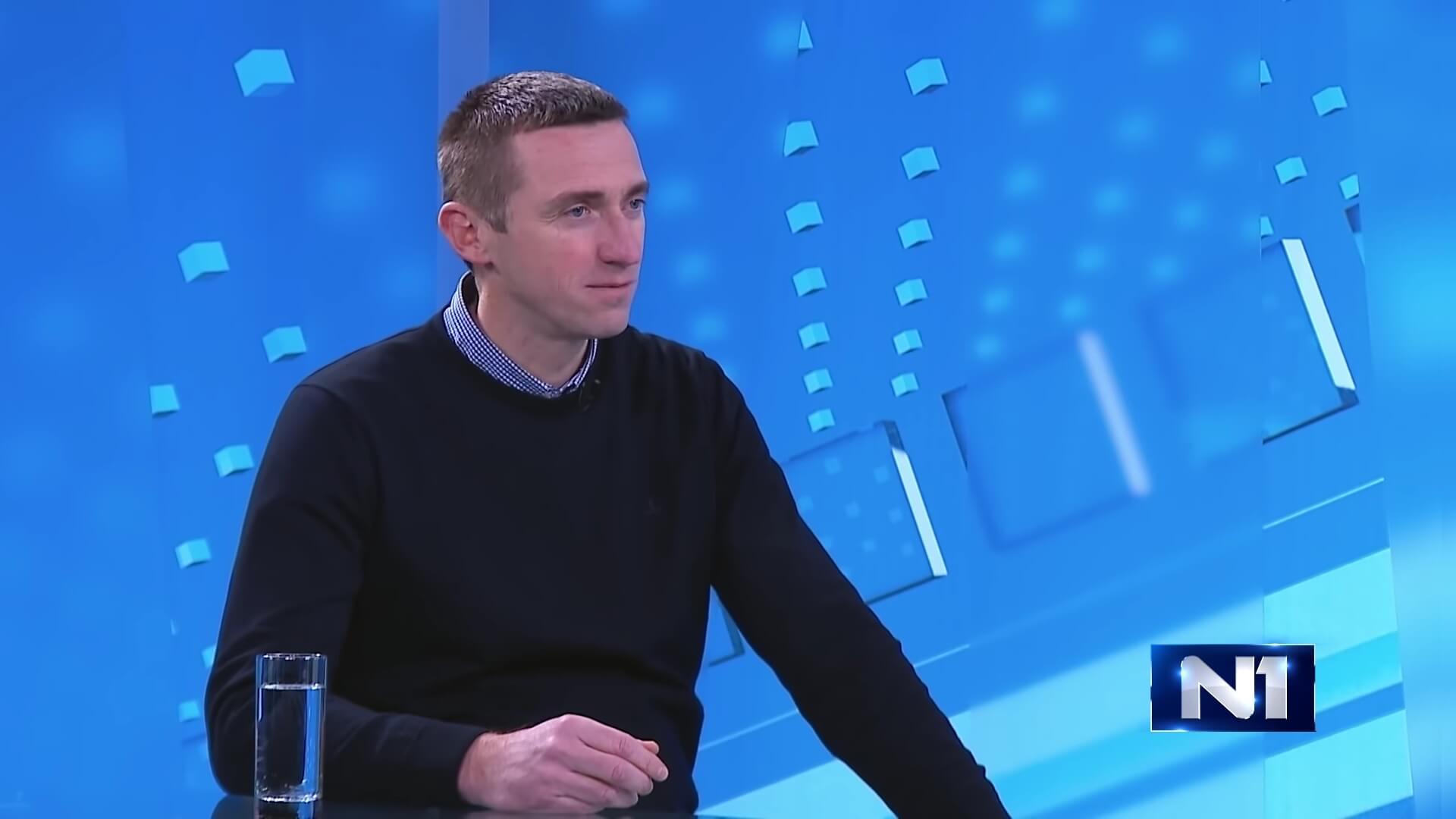
screenshot/ N1
Good idea but more talks needed?
„In Vukovar, parents do not choose the model of education that is imposed by politics, it is nowhere written in public“, said mayor Penava, as reported by N1.
Penava, a former member of the Croatian Democratic Union (HDZ), despite earning a new term in the recent local elections as an independent candidate, enjoyed support from Miroslav Škoro, runner-up candidate for Zagreb mayor elections, and the leader of the Homeland Movement (DP) supports Penava's idea.
„I lived in America for a number of years, in Hungary, I traveled the world... what is the difference between Serbian and Croatian mathematics? Is Argentina in Serbian in the northern hemisphere, and southern in Croatian? I don't get it“, said Škoro adding that segregation was done in malice with a tendency to divide children from the start.
„In Vukovar, the symbol of defense had priorities. Reconstruction of the water tower, and certain moves Penava did well in his last term (he wouldn't win elections if he hasn't), thinks that city needs to move on. I support him 100%“, concluded Škoro.
On the other hand, criticism is erected on national-level politics.
„I don't think that local officials are the ones who need to determine a way in which minority education will be conducted. Political trade is clear here, and I'm glad there is no longer just Serbian-Croatian trading coalition, but also another one“, said Dragana Jecov, a Croatian parliament member from the Independent Democratic Serb Party (SDSS) referring to the accusations of the right-wing that current coalition of HDZ and SDSS and is vile political trade.
Interior Minister Davo Božinović also said that while we need to work on erasing national, social, and political tensions, but this is a question that needs to be discussed more seriously.
Additionally, as N1 reported, the Ministry of Education pointed out that different models of education for Vukovar schools exist, and parents can choose which they find most suitable.
Accepting national differences or nationalistic uniformity?
Some improvements have indeed been seen in the city infrastructure, but Vukovar still remains a challenging place to live. Partly due to the tough economic situation, but also because of discrepancies among Serbian and Croatian residents. Earlier in June, there was even a violent incident when a 30-year-old Serbian member of the Grobari football fan group physically attacked a Croatian 13-year-old boy in front of a bakery for having a medicine mask with Croatian symbols.
„Sadly, this kind of thing happened too long in Vukovar, where people attack each other because of national disputes. Media aren't even introduced to some of these events. It is spread a lot, as evident by the constant police patrols around Vukovar high-schools where there are always police cars around“, said Vukovar police to Večernji List daily newspaper.
Such incidents, a misfortunate loose ends of the war, also come from the Croatian side. Earlier in May, a group of young men chanted anti-Serb slogans in Borovo Selo (close to Vukovar), a scene of heinous war crimes in the '90s), sparking condemnation from both president Milanović and the Croatian Government.
In that light, integrated schools might finally bring positive changes in regards to tolerance and peaceful life for Vukovar citizens. But again, not everyone sees the glass as half full.
Index.hr columnist Gordan Duhaček agreed in his column that Serbs and Croats don't need to go to separate shifts but warns how Penava isn't the guy that should unite them.
„Penava doesn't want to integrate Vukovar schools and end the troubling segregation in a way to ensure a better future for the whole city, but instead to impose his nationalistic, often anti-Serbian narrative as the official one. Penava wants that Vukovar Serbs bow down to his view of the Croatian state“, wrote Duhaček.
Duhaček also reminded the readership of the attempt and fail of the Danube International school that supposed to integrate pupils of both nations, an idea that spawned 16 years ago. But, the project failed, and Duhaček sees both Penava and SDSS leader Milorad Pupovac not feeling too sad about it.
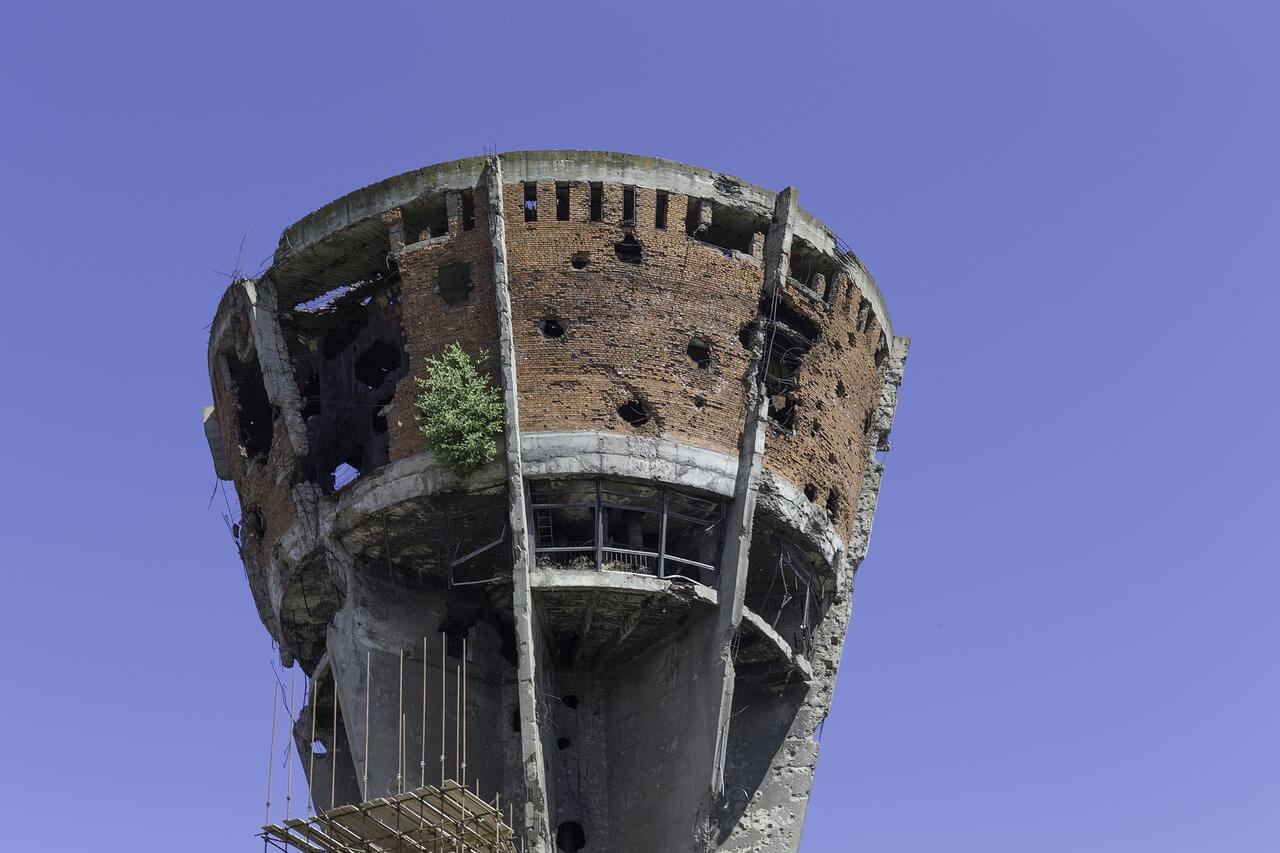
Iconic Vukovar water tower, pixabay
Questions on details
At the end of the week, the situation seems more confusing than clear. Is class integration a good idea? Could it save money for the city financially? What are some actual details of merging Croats and Serbians into one class? Obviously, Škoro is right that 2+2=4 in any math class around the world. But, troubling questions appear in subjects such as language and history. Croats and Serbs sadly have their own, different interpretations of historical facts, particularly when it comes to the last war, and while the speakers of two languages perfectly understand each other, some words do differ, and there is a different accent and spelling in the two formal languages. So, how can these issues be resolved? Would those two subjects remain in different shifts while universal subjects such as biology, math, or physics will listen in one merged classroom? Or will there be a different curriculum that would present both Serbian and Croatian history, Serbian and Croatian literature in that way, making Vukovar pupils more knowledgable in those areas than other pupils in the country?
Or some curriculum consensus on history could be reached, one that would satisfy both the Croatian and Serbian sides and thus truly open a doorway to the better understandings of the two nations in the future in perhaps the most nationally torn city in Croatia?
Obviously, Vukovar city authorities have some tensions with SDSS, but the city also has an expert associate for the development of civil society and national minorities, Siniša Mitrović in one of the City's departments. Did Mitrović manage to gain input from the Serbian minority in Vukovar about this merge? And how fast could the whole thing be realized? This autumn or maybe a bit later?
These are important and interesting questions that can only be answered either by mayor Penava himself or perhaps Josip Paloš, the director of the Vukovar City Education Department.
„Mayor Penava is in a lot of meetings and on fields, and his schedule is full. We will sadly not be able to answer you by your Friday deadline, but we will contact you at the earliest convenience“, said the lady at the Vukovar City PR service when I called them (and E-mailed) with a wish to arrange and conduct a brief phone interview.
While this article may present the current issues surrounding segregated education in Vukovar, this TCN reporter hopes mayor Penava will share more details about his plan on ending segregation in Vukovar schools and kindergarten with joint classes. If done right, this move can indeed be the way to a better, more peaceful future for Vukovar citizens.
Learn more about Vukovar on our TC page.
For more about education in Croatia, follow TCN's dedicated page.
Highlights of the Week: 5 Big Events in Croatia from May 17-23, 2021
May 23, 2021 - TCN's highlights of the week. A look at the events in Croatia from May 17 through the selection of TCN's reporter Ivor Kruljac.
From Local elections to released details of the Euro 2020 championship strategy to the release of Zoran Mamić. Add Besana company attempting to boost its position in Croatia, and you have a truly exciting week. Here are the highlights.
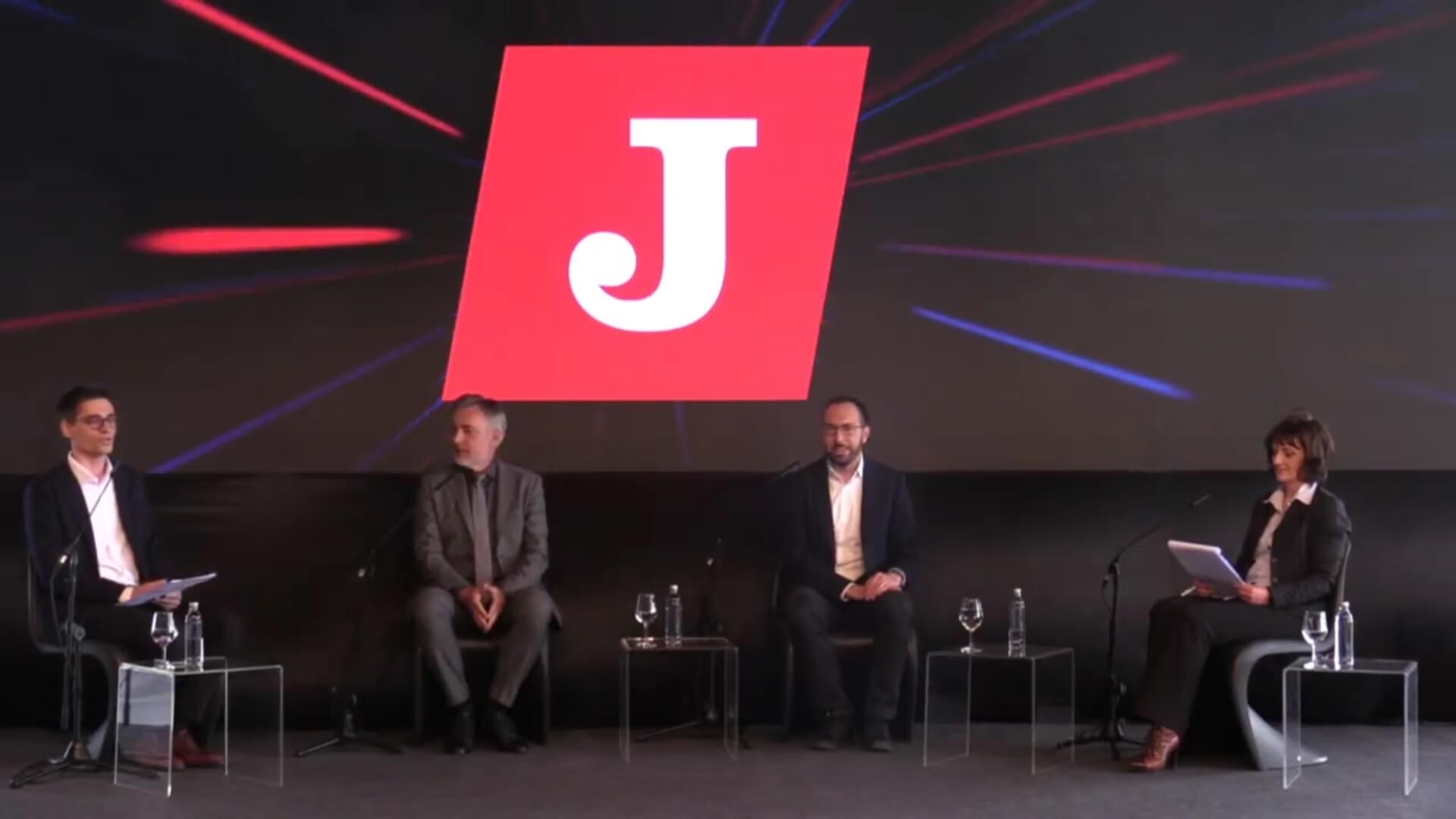
screenshot / Jutarnji list
Highlights of the Week: Zagreb mayor candidates Tomašević and Škoro had a debate ahead of the second round of elections
Jutarnji List invited on Friday mayoral candidates Miroslav Škoro (Homeland Movement), and Tomislav Tomašević of the green-left party We Can! to debate ahead of new elections.
In the first round of the elections, We Can! earned 147.631 votes (45.15%), while Homeland Movement had 39.789 votes (12.16%). Before officially entering the second round, Škoro declared Tomašević and We Can! party extreme left and pushed the narrative of elections as an ideological referendum among right-wing and conservative circles. Škoro also accused We Can! of being foreign mercenaries working for a philanthropist George Soros or wanting to revitalize Yugoslavia and Škoro's associate Zlatko Hasanbegović earlier in the week called We Can! a lesbian syndicate. Additionally, Nikola Grmoja (Most Party) stated for N1 that We Can! are Soroshians and accusations of their weird name-calling saw a random generator on the internet designed to mock these terms by random options of name-calling. Meanwhile, Tomašević continued the campaign talking about solutions to the problems Zagreb is currently facing but occasionally makes remark accusations while keeping it clean. The debate on Jutarnji List saw similar rhetoric from both candidates in their public performances, and overall, at least for the people of Zagreb, May 30 can't come soon enough.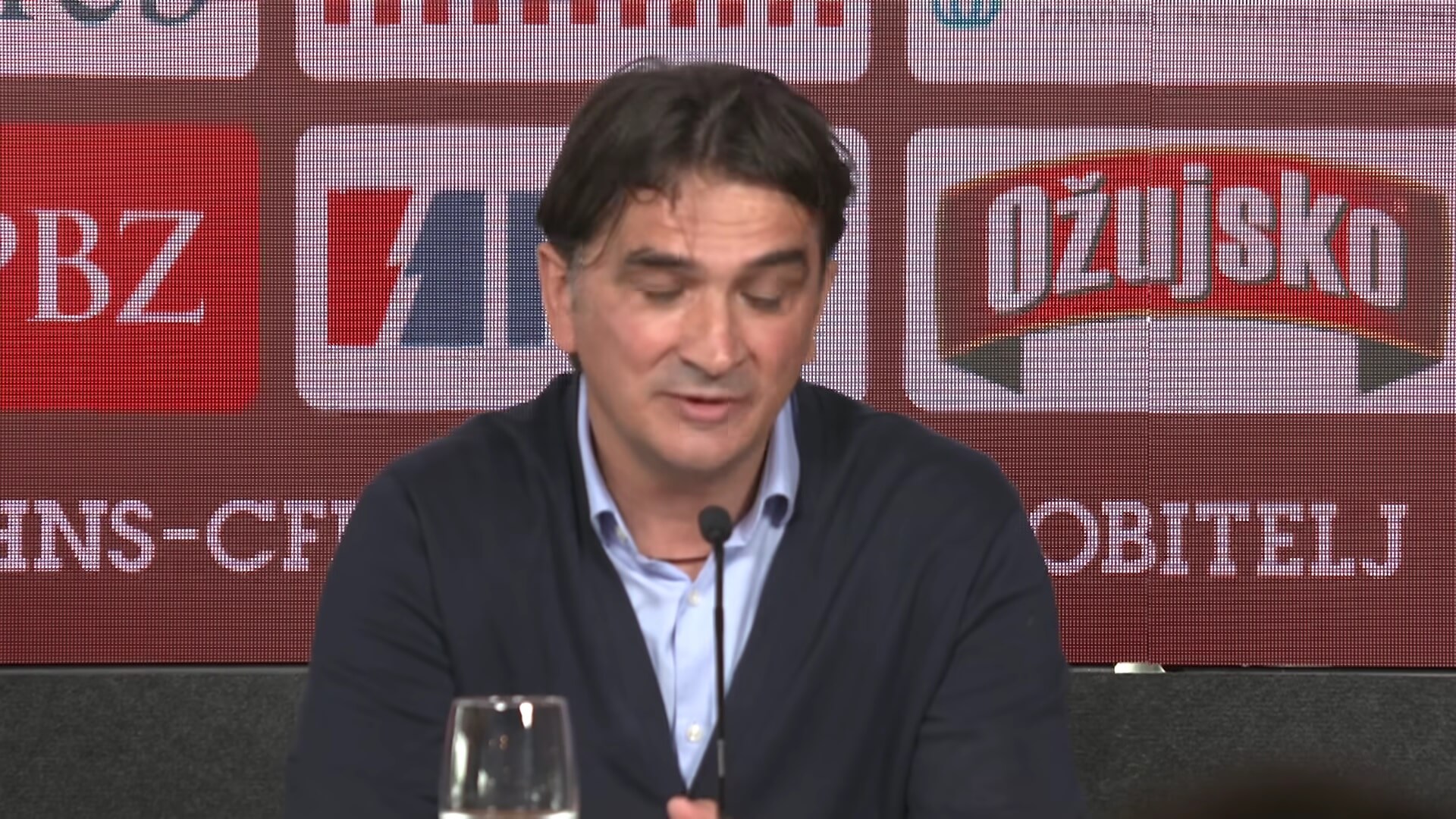
screenshot / Hrvatski nogometni savez
Highlights of the Week: Zlatko Dalić announces preliminary EURO 2020 Croatia player list
Coach Zlatko Dalic has announced the preliminary EURO 2020 Croatia player list on Monday. Luka Modrić (Real Madrid), Marcelo Brozović (Inter), Milan Badelj (Genoa), Mateo Kovačić (Chelsea) are some of the names that made it on the list.
The Croatia national team has entered the last month of preparations for the European Championship, which opens on June 13 at Wembley against England at 3 pm.

screenshot / RTL
Highlights of the Week: Zoran Mamić released from custody
Former Dinamo football coach Zoran Mamić will remain free while in Bosnia and Herzegovina; however, he will have to report to the police once a week, and his personal documents have been temporarily confiscated, the court in Bosnia and Herzegovina decided on Wednesday.
Zoran Mamić was arrested early Wednesday morning by officers from the State Investigation and Protection Agency (SIPA) based on an arrest warrant issued against him in Croatia.
After that, Mamić was handed over to the court in Sarajevo. Judge Branko Perić determined his status, including his citizenship of BiH. The judge ruled that Mamić would remain free with precautionary measures and was ordered to give in his personal identification documents.
The court did not discuss the matter of Mamić's extradition, considering that Croatia has not sent a formal request yet.
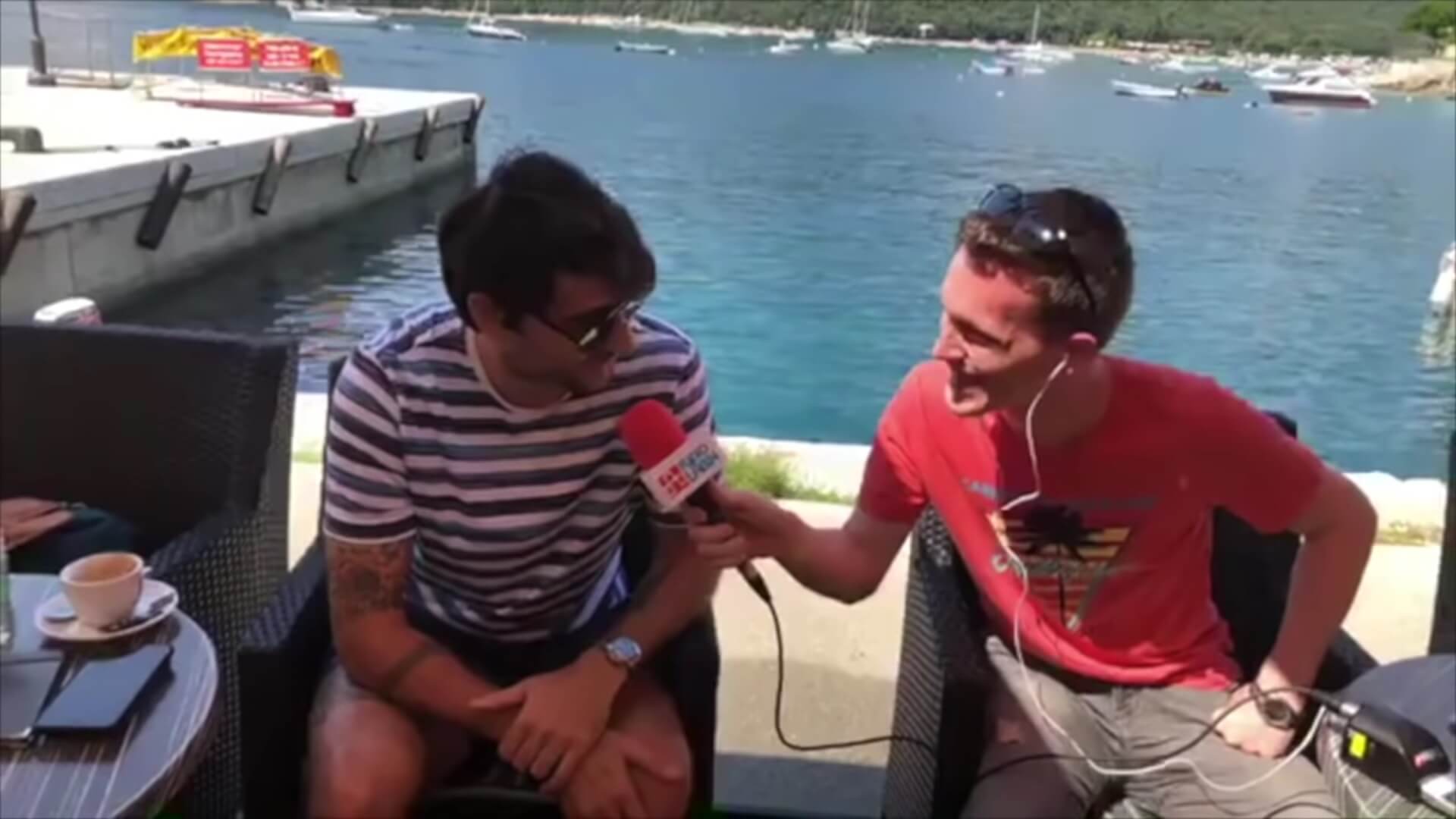
screenshot / Radio Labin
Highlights of the Week: Former football player Vedran Ćorluka new Croatian assistant coach
The new Croatia national team assistant coach Vedran Ćorluka was officially presented by coach Zlatko Dalić at a press conference in Zagreb ahead of EURO 2020.
Although there was a lot of speculation, Croatian football player Vedran Ćorluka officially announced the end of his playing career and was confirmed as the new Croatia assistant coach on Monday.
"I did not plan it, but the moment has come," said Ćorluka at the press conference at which coach Zlatko Dalić presented the list of players for the upcoming European Championship.

Pixabay
Highlights of the Week: Italian company Besana strengthening position in Croatia
The Italian company Besana, which is otherwise one of the strongest European companies in the production and processing of nuts and dried fruit, is working to further strengthen its position here in Croatia.
As TCN reported on Monday, the Italian company Besana currently has 50 subcontractors located in Croatia, from whom it buys about 100 tonnes of hazelnuts per year. But, much more can be expected if their plans go well.
To learn more about Croatia, have a look at our newly launched TC website.
For more about news in Croatia, follow TCN's dedicated page.
Foreign Minister Gordan Grlić Radman Slams Removal of Croatian Flag From Ambassador's Residence in Belgrade
ZAGREB, 23 April, 2021 - Croatian Foreign Minister Gordan Grlić Radman on Friday condemned the removal of the Croatian flag from the ambassador's official residence in Belgrade, saying that such incidents fomented an atmosphere of hate, hostility and intolerance.
"Such incidents are certainly not conducive to understanding (...) We hope and wish for the relations between Croatia and Serbia to be good because it makes sense that we should have stable relations," he told the press.
Croatian Ambassador Hido Biščević told N1 television on Thursday it was no accident that the Croatian flag was taken down from his residence and that the incident reflected "part of the atmosphere" in Serbian society, which he said continued to feed on hate speech.
Unknown persons removed the flag from the building which has video surveillance but no guards most likely on Wednesday morning, he said.
The Serbian Foreign Ministry said this was an "injudicious and isolated act," hoping that it "won't cast a shadow on efforts to set Serbia-Croatia relations on new foundations so that in future they can develop in the spirit of mutual trust and cooperation."
Grlić Radman said that because of such incidents "we can't say the relations have good prospects, we can't talk about a good future, but we must believe in a good future."
He announced that he will go to Subotica on 28 April for the laying of the cornerstone of a new Croatia House. His talks with local officials will also address an initiative, opposed by Croatian linguists, to declare the Bunjevci dialect an official language in that town in northern Serbia.
The minister reiterated that the initiative was contrary to the Croatia-Serbia agreement on the protection of national minorities.
He said that on 27 April the prime minister of the Vojvodina province, Igor Mirović, would visit Petrinja, struck by a devastating earthquake last December.
Serbia's EU path "goes also across Croatia"
The minister went on to say that Serbia's EU path "goes also across Croatia." Before Serbia joins, it is necessary to resolve the issue of the war missing, universal jurisdiction, and reparations for POWs, he said.
Serb representatives have three guaranteed seats in the Croatian parliament and Croatia wants Croats in Serbia to be represented as well, he added.
Serbia "must actively and strongly deal" with reforms, the fight against corruption, and the rule of law, he said.
Serbia was granted EU candidate status in March 2012 and began accession negotiations in January 2014.
Ambassadorial appointments
Although Prime Minister Andrej Plenković and President Zoran Milanović have not yet agreed on the appointment of new ambassadors and consuls, Grlić Radman said he did not think the process was blocked and that there was "only one Croatian diplomacy."
He dismissed the possibility of a quota or a 50:50 model (between the president's and government's proposals). He said "agreement must be reached" and that one could talk about the list of candidates the government had sent the president, but that the government was not in favour of quotas.
He said the candidates were "professional diplomats who have proved themselves on the job."
Milanović, on the other hand, wants it to be known who is behind which ambassador for responsibility's sake, saying that this has been the practice before.
For more about politics in Croatia, follow TCN's dedicated page.
A1 Croatia: "No Deal Reached With United Media Group on N1 Channel"
ZAGREB, 26 March, 2021 - The A1 Hrvatska telecommunications company said on Friday that no agreement had been reached with the United Media Group on the distribution of the N1 TV channel, and that as of 29 March the channel would no longer be available on their TV platform.
The company said it was ready to pay a much higher distribution price than justified for a longer period, but the United Media Group had set an additional condition and asked for a six-month contract only, despite the fact that the contract had usually been a three-year one.
"A1 Hrvatska cannot accept a six-month agreement because that means avoiding a real solution for us and our customers. Such a condition is manipulation ... which United Media Group uses for its negotiations with other operators which it is currently conducting, and it is using this situation to put pressure on state institutions in order to change the legal framework," the telecom said.
It said it is "still open for talks and cooperation with all providers of attractive programme content who are willing to cooperate and whose broadcasting is in the interest of users".
"Even after United Media Group has launched a media campaign trying to manipulate and exert pressure on us by calling commercial business negotiations media censorship, we were willing to continue negotiating until the last moment in good faith and in the best interest of our customers, seeking only a reasonable and viable offer for the distribution of the N1 channel," A1 said.
It added that despite the statements by the programme director that they were prepared to offer to distribute the N1 channel free of charge, that option had never officially been offered during the negotiations.
It has been recently announced that A1 cable provider will drop N1 television and Sport Klub channels from its programming package. The decision to replace some of the channels in their offer, including N1, was made solely due to unfavourable business conditions, the operator said.
In mid-March the United Media replied that "A1 didn’t have a single reason to make the decision they made and drop N1 and Sport Klub."
For more about business in Croatia, follow TCN's dedicated page.
Electronic Media Act Will be Liberalised, Says Minister Nina Obuljen Koržinek
ZAGREB, 17 March, 2021 - Culture and Media Minister Nina Obuljen Koržinek said on Wednesday the Electronic Media Act would be liberalised and that one of the options was allowing the vertical concentration of the media in Croatia.
"We will liberalise that law in the part concerning the regulation of concentration. However, in that case we are considering certain other instruments which generate or ensure media pluralism. I mean the 'must offer' or 'must carry' concepts, but an agreement is yet to be reached on this," she told the press.
The news and programming director of the N1 commercial TV, Tihomir Ladišić, yesterday accused the government of leading to a market monopoly of the two telecoms, A1 and HT, by failing to amend the Electronic Media Act.
His comment came after news that A1 decided to remove N1 from its offer and that it was certain that HT would follow suit.
Asked if the government would allow vertical media concentration, enabling a media publisher to also be a media content operator, which is banned under the current Electronic Media Act, the minister said that was one of the options, adding that the law explicitly banned an operator from also being a media content publisher.
Other media pluralism mechanisms will be introduced
"We are one of the last EU states to have that explicit ban. If we go towards lifting the ban, then some other mechanisms ensuring media pluralism will be introduced," she said.
These mechanisms will enable a company that is both publisher and operator to offer the channel for which it obtained a concession to itself as an operator and to someone else under the same terms.
The minister said such vertical concentration was "what the public can rightfully be afraid of."
She reiterated that A1's decision to remove United Media Group's channels, including N1, from its offer, was strictly a business matter between the two companies, not a matter of legislative regulation.
The minister has a number of times dismissed the argument that the Electronic Media Act did not allow N1 to broadcast on its own platform, saying the law regulates only publishers which have a concession and are established in Croatia.
"N1 is a pay channel which is not established in Croatia and does not have a concession," the minister said.
She would not say what it meant for media democracy in Croatia that N1 was being phased out because two operators decided to remove it from their offers.
"Two days ago I said I believe it's in the public interest that all channels which interest the Croatian public should be available on all operators and I stand by that."
Following news that A1 was cancelling its contract with N1, MPs today called for regulating the telecommunications and media market and resolving contentious issues as soon and as precisely as possible with a new electronic media law.
For more about politics in Croatia, follow TCN's dedicated page.
Croatia in the World's Top 5 for Alcohol Consumption
The Portal Daily Viz, with the help of data from the World Health Organization, created a map which is solely based on the data of alcohol consumption throughout the countries of world.


